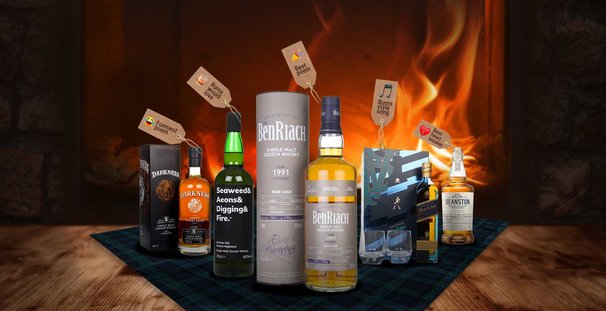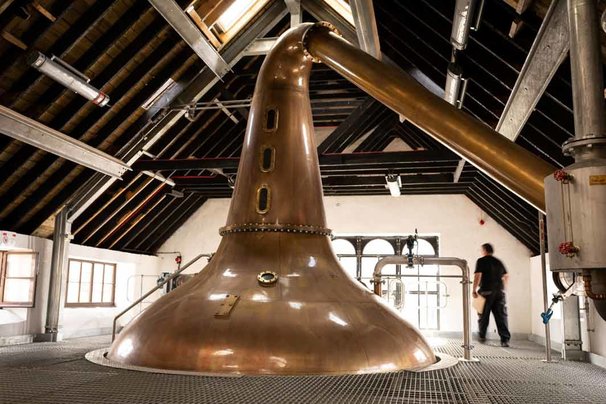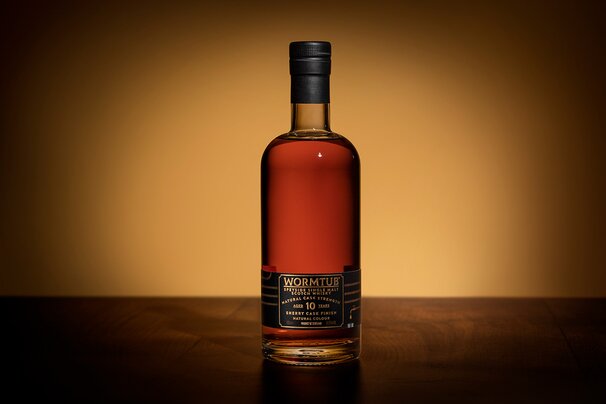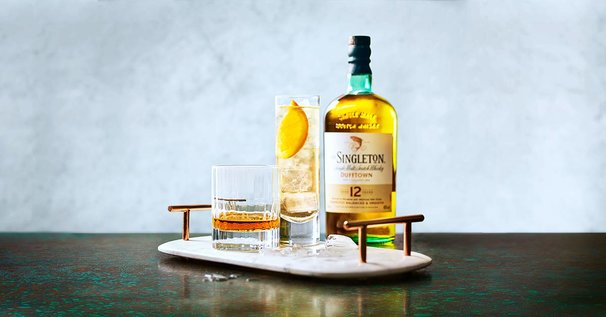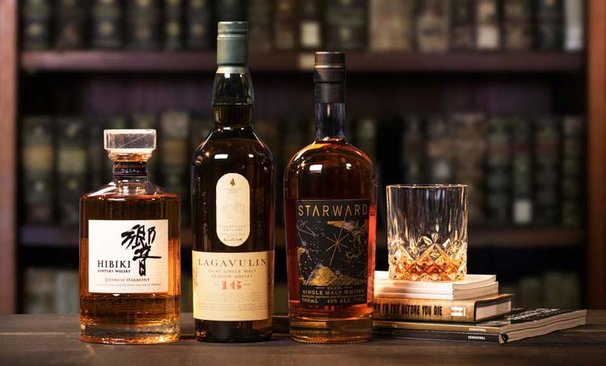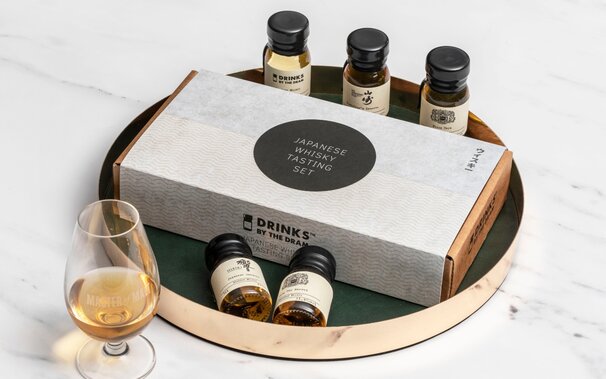Whisky Guides
Welcome to the definitive guide to whisky. Our guide is perfect for anyone new to whisky and also caters to whisky aficionados. Whether you want in-depth information on basic terms, whisky distillation, how to taste whisky, and where to start – you are in the right place. We will keep adding to our whisky guides to ensure we can educate and inspire you as you explore this incredible spirit!
POPULAR CATEGORIES

HELP & ADVICE
A Guide to the Scotch whisky regions
Explore the Scotch whisky regions with us and learn all about their history, definitions, and the whisky made within them.
Deep Dive into whisky
History of Whisky timelines
Frequently asked questions
How many units are in a bottle of whisky?
The number of units in a bottle of whisky depends on the size of the bottle and the alcohol by volume (ABV) percentage. Here's how you can calculate it:
- Determine the volume of the bottle in millilitres (ml).
- Find out the ABV percentage of the whisky.

So, taking a standard bottle of whisky at 700 ml bottled at the minimum requirement of 40% ABV, using the formula we can calculate the below:
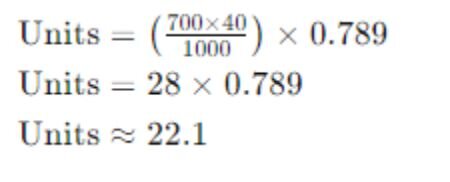
So, a 700 ml bottle of whisky with 40% ABV contains approximately 22.1 units of alcohol.
Is whisky vegan?
Yes, whisky is generally considered vegan. Water, barley (or other grains), and yeast are the main ingredients in whisky, which are all plant-based. No use of animal products here.
However, some whiskies are aged in barrels that previously held products like sherry or wine, which may have been filtered using animal-derived fining agents such as isinglass (from fish bladders) or gelatin. It’s not common, but something to be aware of. There are also flavoured whiskies out there and the additives may derive from animal products, like honey. For strict vegans, it’s worth checking with the specific brand or manufacturer to ensure no animal products are used at any stage of production.
Does bottled whisky get better with age?
Bottled whisky does not improve with age. Whisky gains its character, flavour, and complexity from ageing in barrels. The interaction with the wood allows it to absorb compounds that contribute to its taste and aroma. Once whisky is bottled, the maturation process stops. The whisky remains chemically stable, so it develops further flavours or complexity. If stored properly, it will taste the same in 10 or 20 years as when first bottled. That means keeping the bottle upright, away from direct sunlight, and in a cool, stable environment.
Does whisky go off?
Whisky doesn't go off in the sense of becoming unsafe to drink. Its quality can degrade over time if not stored properly. Once a bottle of whisky is opened, it comes into contact with air, leading to oxidation. Over time, oxidation can make the whisky taste flat or less vibrant. If the bottle is not tightly sealed, the alcohol content can evaporate, reducing its strength and degrading its character. Exposure to light, particularly sunlight, can cause chemical reactions that degrade the whisky too, leading to off-flavours, while significant temperature changes can also affect the whisky's flavour. A cool, stable environment is best, folks.
Once opened, it’s best to consume the whisky within the first couple of years, but if stored properly, an unopened bottle of whisky can last indefinitely.
How many bottles are in a cask of whisky?
The number of bottles in a cask of whisky depends on the size of both the cask and the bottles, as well as what strength the whisky is being bottled at (as diluting with water will add volume). Common cask sizes and the number of standard 750 ml bottles they can produce are as follows:
- American Standard Barrel (ASB): 200 litres. This can produce approximately 266 bottles (200,000 ml / 750 ml = 266.66).
- Hogshead: 225 litres. This can produce approximately 300 bottles (225,000 ml / 750 ml = 300).
- Butt: 500 litres. This can produce approximately 666 bottles (500,000 ml / 750 ml = 666.66).
What is Scotch?
Scotch, or Scotch whisky, is a type of whisky made in Scotland according to specific regulations. It must distilled to an alcohol content of less than 94.8% ABV from malted barley or grain. The whisky must also be aged in oak casks for at least three years and bottled to a minimum alcohol content of 40% ABV. The distillation, maturation, and bottling all need to take place in Scotland. The production, labelling, and marketing of Scotch whisky is regulated by laws in the UK to ensure it meets specific quality and origin standards.
What is single malt whisky?
Single malt whisky is a type of whisky that is produced at a single distillery using only malted barley as the grain ingredient. Being made at one distillery distinguishes it from most blended whiskies, which may contain whisky from multiple distilleries. Single malt whisky is typically distilled in pot stills, which are traditional copper stills and the whisky must be aged in oak casks for a minimum of three years. In Scotland, to be labelled single malt the whisky must be distilled in pot stills.
What's the difference between Scotch and Single Malt whisky?
Scotch whisky is a broader category encompassing various types of whisky made in Scotland. Single malt is one style within the wider category of Scotch whisky, which includes other styles like Single Grain, Blended Malt, Blended Grain, and Blended Scotch.
If it is made from 100% malted barley and distilled at a single distillery, it is called Single Malt Scotch whisky. If it is made from a mixture of malt and other grains, it is called Grain Scotch. Blended Scotch is a mixture of different single malts and grain whiskies, Blended Grain Scotch is a blend of single grain whiskies from different distilleries, and Blended Malt Scotch whisky is a blend of single malts from different distilleries.
Not all single malts are Scotch, there are single malts made all over the world, from Ireland to Japan.
Is bourbon a whisky?
Yes, bourbon is a type of whisky. Specifically, it is an American whiskey and can be made nowhere else in the world. While most bourbon is made in Kentucky, it can be produced all over the United States. It has particular production regulations that distinguish it from other whisky types like Scotch, Irish whiskey, and Canadian whisky.
Bourbon must be made from a grain mixture that is at least 51% corn. The remaining 49% can include other grains such as malted barley, rye, and wheat. It must be distilled to no more than 160 proof (80% ABV) and entered into the barrel for ageing at no more than 125 proof (62.5% ABV). Bourbon must also be aged in new, charred oak barrels, and while there is no minimum ageing period for a spirit to be called bourbon, to be called "straight bourbon," it must be aged for at least two years. Finally, bourbon cannot contain any additives other than water and must be bottled at a minimum of 80 proof (40% ABV).
Whisky Glossary
Keen to learn more?
Our authors
Explore more
Sign up to our newsletter
Special offers, recommendations and expert advice to your inbox! Unsubscribe at any time.
I agree to the Privacy Policy






